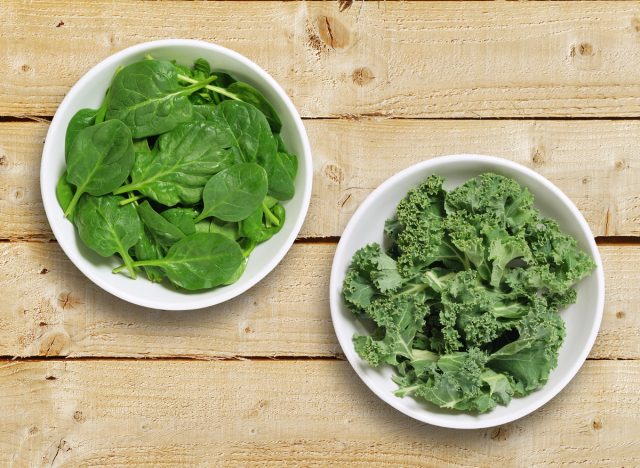The #1 Best Vegetable to Keep Your Brain from Aging, Says Dietitian

If we could cut through all the confusion about healthy eating and boil good nutrition down to one simple-to-follow rule, one daily choice that takes very little brainpower or willpower, wouldn’t that make your life so much easier?
Don’t hold your breath: Nutrition rarely fits so nicely into an if-then statement—if you eat this, then this will happen.
Nevertheless, food science research continues to pinpoint certain nutrients that appear to be essential to the optimum function of our most important body parts. Like our brain.
We asked a member of our medical expert board, registered dietitian Toby Amidor, MS, RD, CDN, FAND, to pick from the garden the best vegetable that she believes will be the most effective in keeping our brains healthy for the long haul. Now, that’s an almost impossible task for someone who advocates eating a variety of whole foods to reap the cornucopia of nutrients that are essential to good health. So, she wisely chose a category of vegetable versus one single specific plant to keep brainpower youthful: “green leafy vegetables.”
“Research suggests that including green leafy vegetables in a balanced diet may help slow cognitive decline,” says the award-winning nutrition expert and author of the Wall Street Journal best seller Diabetes Create Your Plate Meal Prep Cookbook.
“Greens, such as?” we asked.
“Kale, spinach, broccoli, and collard greens.”

Those powerhouse leafy greens, she says, are rich in the proven brain-boosting nutrients vitamin K, folate, beta-carotene, and lutein.
Amidor highlights an observational study published in 2018 in the journal Neurology, involving more than 950 people, ages 58 to 99, participating in research for the Memory and Aging Project. In the study, subjects completed a food frequency questionnaire and two cognitive assessments over nearly 5 years. In analyzing the data, researchers found that people who ate one to two servings of spinach, kale, collards or mustard greens daily had the same memory strength and mental ability as people 11 years younger. The scientists speculated that those key nutrients in the greens were responsible for slowing cognitive decline.
Here’s what those important compounds in greens are believed to do in your brain:
Vitamin K
You may be aware of K’s role in blood clotting, but phylloquinone, K’s scientific name, has been shown to protect neurons from damage and death from toxins in the brain.
Folate
This B vitamin is critical to the production of neurotransmitters and myelin, the protective insulating layer covering nerves in the brain and spinal cord that allows electrical impulses to fire quickly along nerve cells.
Beta-carotene
The compound best known for giving carrots and peppers their orange and red color—and for healthy vision—is also prevalent in leafy vegetables. As an antioxidant, it’s helpful in limiting damage from oxidative stress, which is believed to be a major factor in cognitive decline. Studies have shown that beta-carotene improves memory skills.
Lutein
This antioxidant known for reducing age-related macular degeneration is also a carotenoid, like beta-carotene, but may be even more important for brain health since lutein accounts for 60% of carotenoid content in the brain. Studies have linked breast-fed children who get lutein from their mother’s diet to greater cognitive function compared to formula-fed kids. And researchers are looking into lutein as a potential treatment for Parkinson’s Disease due to the antioxidant’s role in preventing cell death.
Now, you’re probably thinking, “My brain needs more greens.” Well, here are some ideas: Check out 35+ Healthy Salad Recipes for Weight Loss. But also sneak leafy greens into your diet in other ways besides salads and sides, like in your breakfast.
“If you love smoothies for breakfast, add a handful of spinach or kale before blending,” says Amidor. You won’t even taste the difference!









